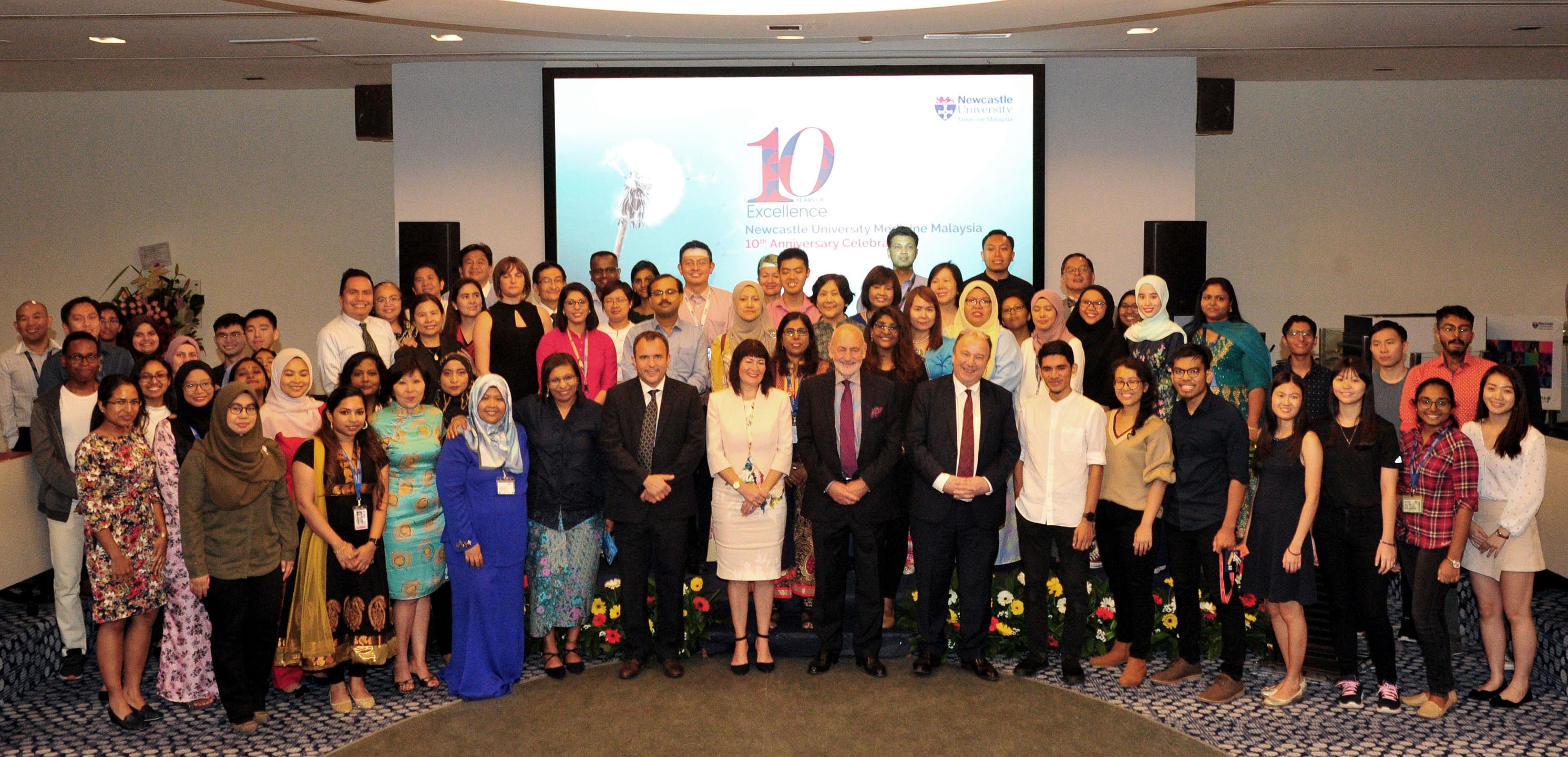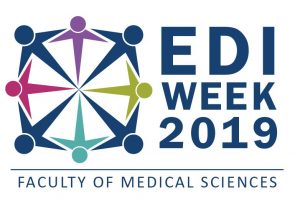To mark the beginning of Disability History Month 2021, FMS held another ‘My Journey’ event. This session consisted of 4 speakers in a panel discussion; Wendy Leanne Craig, an information security officer who has worked within the university since 1997, Charlotte Brown, a Biosciences PGR student, Emma Slack, a PHSI Research Associate, and Robert Shiel, who had worked for the university since 1980 and was also a student prior to this. The discussion was about everyone’s lived experience with a hidden or visible disability and talking about any barriers they may have faced and overcome to get to where they are now. We ended the panel discussion with a short Q&A session.
‘Coming out’ with a disability
Wendy Leanne Craig began the talk introducing herself, she is an information security officer within Newcastle University, working within the university since 1997. Wendy shared that she has a rare genetic disease known as Wilson’s, which predominantly affects her liver among other things. Her diagnosis also led to other effects such as ‘dizziness, tremors, dystonia, and a shaky voice’. Since Wendy began working at Newcastle, she has noticed lots of positive changes in the space of disability and accessibility.
Wendy began by saying she has an ‘open policy’ around her disability and will openly talk about it within the workplace to colleagues and friends. However, when Wendy first began her job at the university in 1997, she said you could not immediately see that she had a disability, it was hidden. This resulted in what Wendy describes as her having to ‘come out’ to her colleagues and friends that she has Wilson’s so that any issues she faced were not overlooked.
Since her disability became more visible, she has needed more support from university services, and has found the university has helped her a lot by supporting her with access to specialist resources and equipment she might need. Wendy said that she uses a software on her computer called ‘Dragon’. This aids her by recognising her voice so she can speak, and her words type out for her, and she can command her computer to do things using just her voice allowing Wendy to access and complete the same work as her colleagues.
Studying with a disability
Charlotte Brown is a current PhD student at Newcastle University. She studied her bachelor’s in human biology at Sheffield Hallam University prior to completing an MSc in computational systems and biology at Newcastle University.
Charlotte has been deaf from a young age and said that during her time studying, she has had to make sure her experience is not affected by this and she has not let her disability hold her back. Charlotte said her university experience has been helped greatly by the support from the university disability services and from staff in catering to her needs. This has allowed her to continue with her studies and succeed at every level to get to where she is now.
‘…I wasn’t doing enough or letting myself down’
Emma Slack is a research associate in the Population Health Sciences Institute at Newcastle University. Emma has a hidden, fluctuating disability that causes her to feel fatigued very often. She opened up about her struggles during school and at university trying to keep up with her peers but always finding it hard, but still pushed herself as she had nobody else to compare herself to.
After starting her PhD and a new job to support her financially, she had to go part-time with her academic studies. Pushing herself to work more hours than she was able to had taken a toll on her studies and health. After going part-time, she said she felt she ‘wasn’t doing enough or letting myself down’, despite this decision being in her best interests. She said this feeling came from external voices telling her things like ‘you’re just too scared to get a job’.
Emma stated that if she had more representation growing up of people in similar situations or facing similar obstacles, she would never have pushed herself or felt she was ‘behind’ her peers. She has now accepted that her journey in academia may take longer and she may face more obstacles, but that does not make it any less valuable as she has put in the same amount of work as those around her.
Emma also put together a small list of things people can do to help make her, and maybe others, journeys ‘less of a bumpy ride’:
- Don’t make assumptions like:
- If someone works part time it must be a good thing
- If someone looks well, they are well
- If someone needs to take a break or a rest, they are being lazy, and don’t laugh at them either
- You know how to cure someone’s disability or long-term condition
- Respect boundaries
- Ask what accessibility needs people have ahead of time for meetings or events etc.
- Schedule in breaks if over an hour as common practice
- Use inclusive language, not just in relation to disability
- Be kind
Making positive changes to University accessibility
Robert Shiel is a Disability Liaison Officer within the university. He has worked for Newcastle University since 1980 and studied here prior to his employment. He then went to Aberdeen to get his PhD. It was when he was driving in a car in Zimbabwe, a tyre burst causing the car to roll. He suffered many injuries as a result of the accident including a broken back, punctured lung, concussion, among other injuries.
After the accident, he was flown back to Britain on what he described as an uncomfortable journey. His boss at the time told him that he had 6 months paid sick leave before he had to return to work. At this point Robert did not know what the extent of his injuries were. He found himself in the position of having to use a wheelchair as his accident had led to him being unable to use his legs.
Upon his return to work, his colleagues were very supportive, and he spent time trying to get facilities adapted for himself. He retired as an academic in 2012 and was hired as a consultant to help with access for disabled staff and students across Newcastle University’s campus. He said that the university facilities improved more and more as he was in his role and after receiving a good budget from a previous Vice Chancellor who wanted to make the campus as accessible as possible to everyone. However, Robert was not met with this kind of assistance to begin with, he said that when he first got into his role of consultant, he was met with negativity from those around him. But since his job, he has helped bring about a lot of changes to the campus and make sure all faculties, departments, rooms etc. are accessible for all staff and students.
My personal reflection of the talk
I found the talk extremely enlightening and it brought to light a lot of issues I had only ever heard in passing. Being able to hear each of the speakers experiences first-hand and learning about how different each of their stories were brought up a lot of questions for myself. I wondered why we aren’t doing more on a larger scale to help represent those with both hidden and visible disabilities, especially within education, to combat issues like imposter syndrome as not everyone within the disabled community will experience the same struggles. This is why making sure everyone’s accessibility requirements are met, whether they have a visible or hidden disability, is vital in making sure everyone feels heard and can achieve their best without facing further, unnecessary obstacles.
Thank you so much again to all of the speakers for taking the time to participate in this discussion. The next My Journey event with new speakers will be taking place in the new year – we hope to see you there! Keep up to date with events over on our Twitter page @FMSDiversityNCL!


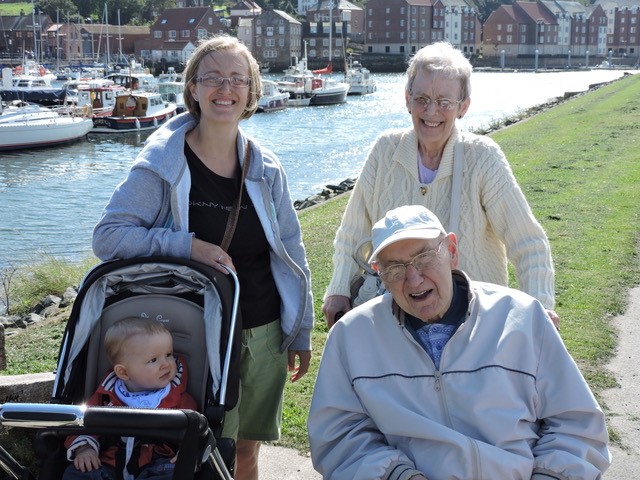
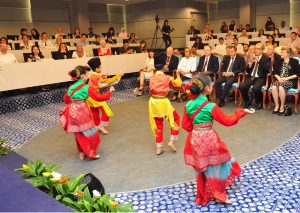 On 21st September 2019, Newcastle University Medicine Malaysia (NUMed) turned 10. Since welcoming its first cohort of students in September 2009, this first international branch campus of Newcastle University has been delivering exceptional medical education in Malaysia, extending the legacy to the Southeast Asian region. NUMed’s global community of students, faculty, staff and alumni convened to celebrate this momentous milestone, which was marked by a medley of local cultural performances and moving speeches by international and local leaders in education. Prof. Baldwin imparted his thoughts on what he observed were the makings of NUMed’s success: the excellence of all its staff, both academic and professional; the cooperation between NUMed, Newcastle University, UK, and NUMed’s partners in Malaysia; and the openness and collegiality of the NUMed community, whether international or local.
On 21st September 2019, Newcastle University Medicine Malaysia (NUMed) turned 10. Since welcoming its first cohort of students in September 2009, this first international branch campus of Newcastle University has been delivering exceptional medical education in Malaysia, extending the legacy to the Southeast Asian region. NUMed’s global community of students, faculty, staff and alumni convened to celebrate this momentous milestone, which was marked by a medley of local cultural performances and moving speeches by international and local leaders in education. Prof. Baldwin imparted his thoughts on what he observed were the makings of NUMed’s success: the excellence of all its staff, both academic and professional; the cooperation between NUMed, Newcastle University, UK, and NUMed’s partners in Malaysia; and the openness and collegiality of the NUMed community, whether international or local.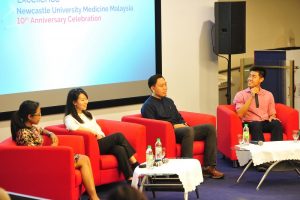 Fast forward ten years, and the FMS EDI Team and the School of Medical Education Academic EDI Lead have been proud to support colleagues at NUMed to form their own EDI committee comprising 11 members of staff, a mixture of PS and academic staff plus two students. The team at Malaysia took the initiative to hold discussions with their counterparts in Reading and Southampton prior to setting up the EDI committee. These two campuses, along with Nottingham and Herriot-Watt, do not have local EDI committees, as a result NUMed has been a trailblazer, as the first campus in the region to look at EDI from a local perspective.
Fast forward ten years, and the FMS EDI Team and the School of Medical Education Academic EDI Lead have been proud to support colleagues at NUMed to form their own EDI committee comprising 11 members of staff, a mixture of PS and academic staff plus two students. The team at Malaysia took the initiative to hold discussions with their counterparts in Reading and Southampton prior to setting up the EDI committee. These two campuses, along with Nottingham and Herriot-Watt, do not have local EDI committees, as a result NUMed has been a trailblazer, as the first campus in the region to look at EDI from a local perspective.